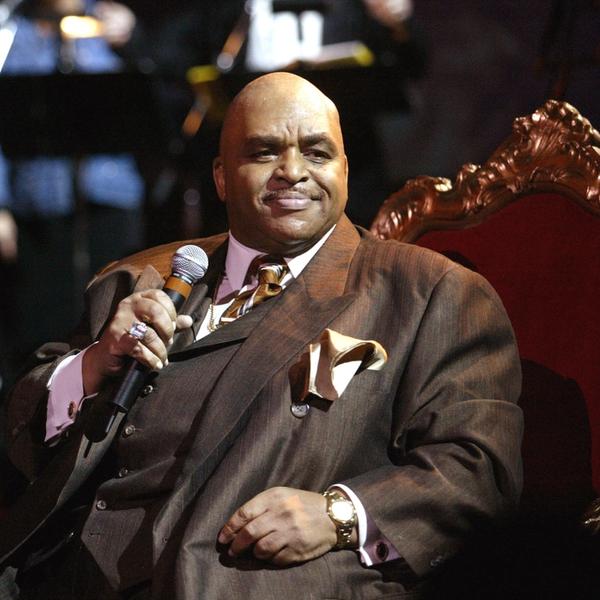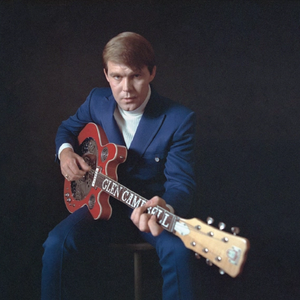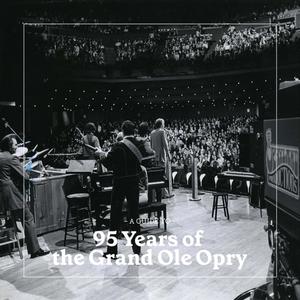




Link copied

Had soul and gospel icon Solomon Burke been allowed to find further country music success in the 1960s, rhythm and blues would likely have never been seduced to the dancefloor by disco. A single artist’s significant development could have forever altered the history of soul and country as a unified force in popular music.
“If that alternate history had occurred, country music would’ve been an enriched and more entertaining genre,” says author and journalist David Cantwell. The Kansas City-based writer and Rolling Stone contributor penned Pennies from Heaven: Thirteen Ways of Looking at the King of Rock ’n’ Soul, a profile on Solomon Burke. “However, asking a question like that is also akin to asking, “what if Jim Crow segregation didn’t exist? Then everything would’ve been great”. It’s a nice thought, but not the reality of the situation”.
For the uninitiated, Solomon Burke is the self-proclaimed “King of Rock and Soul”. He released nearly two-dozen top-40 Billboard charting singles in a 47-year career that spanned 15 different record labels. He was, intriguingly, the first gospel act to sign to Apollo Records in 1955 and the first rhythm and blues act signed to Atlantic Records in 1960, after Mahalia Jackson and Ray Charles had left the labels respectively.
Yet the key to understanding Burke is realizing that his talents as a vocalist lent very well to him becoming the biggest Black country star since DeFord Bailey.

At the age of nine, Burke became a pastor at his grandmother’s congregation, the United House of Prayer for All People in West Philadelphia, Pennsylvania. By the time he was in high school, he had signed with Apollo Records. Once reaching Atlantic Records, his charismatic influence as a preacher was deemed untameable for pop audiences, so he was forced into singing the blues. As he noted in a 2005 interview, Burke was troubled by this. He said, “Because of my age and my position in the church, I was concerned about saying things that were not proper, or that sent the wrong message.”
Eventually, he settled on recording ‘Just Out of Reach (of My Two Empty Arms)’; a country song previously recorded, albeit unsuccessfully, by Faron Young and Patsy Cline. Released just a year before Charles’ iconic success with Don Gibson’s ‘I Can’t Stop Loving You’, the song was stalled on the charts. This was until Burke met the iconic “Singing Cowboy”, Gene Autry. Like many young Black men of the era, Burke grew up watching Autry on television. Autry, impressed by Burke’s charm, decreed that ‘Just Out of Reach (of My Two Empty Arms)’ should be immediately added to playlists on some of the national-broadcasting pop stations that he owned nationwide. The song rose to the top ten of Billboard’s R&B charts, while impressively crossing over to the top-25 of the Hot 100 charts.
However, Burke would never be granted the national acclaim afforded to Ray Charles as a country interloper.
Hot on the heels of having his Gene Autry-endorsed hit played nationwide, concert promoters throughout the South booked who they thought was a charismatic new country star - to sing at Ku Klux Klan rallies. In a 2003 60 Minutes interview, Burke recalled, “Way down in the South somewhere, I showed up, and the promoter said to me, ”Is Solomon Burke here yet?“ I said, “Yeah, I’m right here”. His eyes grow wide, and he walks away. The guy comes back with the sheriff, saying, “Boy, don’t play games. Show me some I.D.” So he looks at it, pulls the promoter aside and says, “You got a problem. You can’t let him go out there”. So they called the doctor, had him cover my face in bandages and made it look like I had an accident. That’s how I performed that night.”
By 1963, Burke - after being racially shunned out of country music by segregation - invented a new term for his raw, undefinable blend of gospel, blues, folk and country-inspired vocals: soul. As a gimmick - one that would define his career and spawn imitators, including James Brown and numerous others - he began to wear a cape and crown onstage, as the “King of Rock and Soul”.
As the king was born, he immediately reigned. Burke amassed hits like the Wilson Pickett-penned ‘If You Need Me’, the legendary ‘Everybody Needs Somebody to Love’, and ‘Got to Get You Off My Mind’. Simultaneously, a fascinating evolution occurred. Though Black soul artists still occasionally sang country, white country and Black soul music became less explicitly connected.
“I find it fascinating that later in his career, Burke performed so many traditional songs out of the country canon,” says David Cantwell, when asked about the mid-60s era split between country and soul. “With his slow, deep register on those songs, he reminds me of earlier artists like [Memphis-based 1940s blues star] Ivory Joe Hunter”. Cantwell cites Hunter’s 1950 R&B chart hit, ‘I Almost Lost My Mind’, as “the style of music that’s ground zero for the Nashville Sound”. Even more, he says that the style of crooning, the sort that artists like Burke and Hunter did well, was very similar to the vocal favored by another Black crooner: Charley Pride.
As the unquestionably smooth and soul-inspired “Nashville Sound” washed over country music in the early 1970s, white artists with clear Black inspirations - like Elvis Presley and Glen Campbell - scored “countrypolitan” crossover hits. Yet by the mid-1970s, the unfortunate occurrence that befell Solomon Burke’s groundbreaking country career and spawned soul music, led to a historical deviation. This moment has ultimately led to the decline of soul music’s “classic” inspirations, plus the fractious state of Black artists currently trying to gain solid footing in country music.
The mid-1970s soul-to-disco evolution could have easily been held off had country music opened the door to Black soul artists. When asked to confirm or deny the veracity of that statement, David Cantwell opines, “Soul artists having country radio as a home during the countrypolitan era would’ve been ideal”. But, by the mid-1970s, America’s racist tendencies were so entrenched, that country music was content with having only one Black superstar, Charley Pride. And even still, Pride - with the “King of Country” George Jones once painting “KKK” on his automobile - faced mind-blowing levels of racism.
A switch to country could’ve saved Issac Hayes and Stax Records (imagine the man behind the 'Theme From Shaft' soundtracking Jim Brown, Lee Van Cleef, Fred Williamson, and Jim “Black Belt Jones” Kelly’s Blaxploitation spaghetti western Take A Hard Ride). Or, imagine more extraordinary explorations into country catalogs by Al Green. A situation in which Charley Pride is joined by Black male vocalists, including Solomon Burke, Ray Charles, Marvin Gaye, David Ruffin, Wilson Pickett, Bobby Womack, Green and Hayes, is fascinating to contemplate.
Solomon Burke’s sweet blend of secular-meets-sanctified gospel and bluesy, gut-bucket R&B, radically transformed country music a step too far for the Jim Crow era. However, in a point updated for the present, David Cantwell notes, in an off-handed aside, “Race should never be a limit on radio format. Country music, as an industry, is still in its Jim Crow era. It’s never had its Reconstruction or its civil rights movement”.
Cantwell’s statement was made roughly one month before Canadian researcher Dr Jada Watson’s data report noting that, since the year 2000, Black, indigenous, and people of color (BIPOC) artists received 2.3% of mainstream country music’s radio airplay. In the face of these numbers, the reality that country and soul music had been linked and endorsed by Gene Autry seems extraordinarily unbelievable.
In an ideal world, a lineage should exist from Solomon Burke’s ‘Just Out of Reach (of My Two Empty Arms)’ to Charley Pride’ ‘Kiss An Angel Good Mornin’. It could even extend to Al Green’s ‘I’m So Lonesome I Could Cry’, Gnarls Barkley’s 'Crazy', and Anthony Hamilton’s 2007 hit 'Do You Feel Me?' However, this is not the case because of racism’s pernicious influence.
If you’re wondering whether the takeaway from this story is one consistent with modern, angst-riling tales of Black country’s inability to gain equity in a lily-white genre, fear not. The story of how country music indirectly embittered soul’s tradition and legacy has a sweet, enduring close - courtesy of Solomon Burke. In a 2007 American Songwriter interview, upon the release of his album of country covers entitled, appropriately, Nashville, the “King of Rock and Soul” stated the following:
“Well, you take your soul with you wherever you go. If it’s jazz or blues or gospel or classical, you add the soul to it, because the soul is within you.”
Listen to our Solomon Burke: The Country Star? playlist above. David Cantwell is an author and contributor for Rolling Stone Country and the New Yorker, and can be followed on Twitter here.





